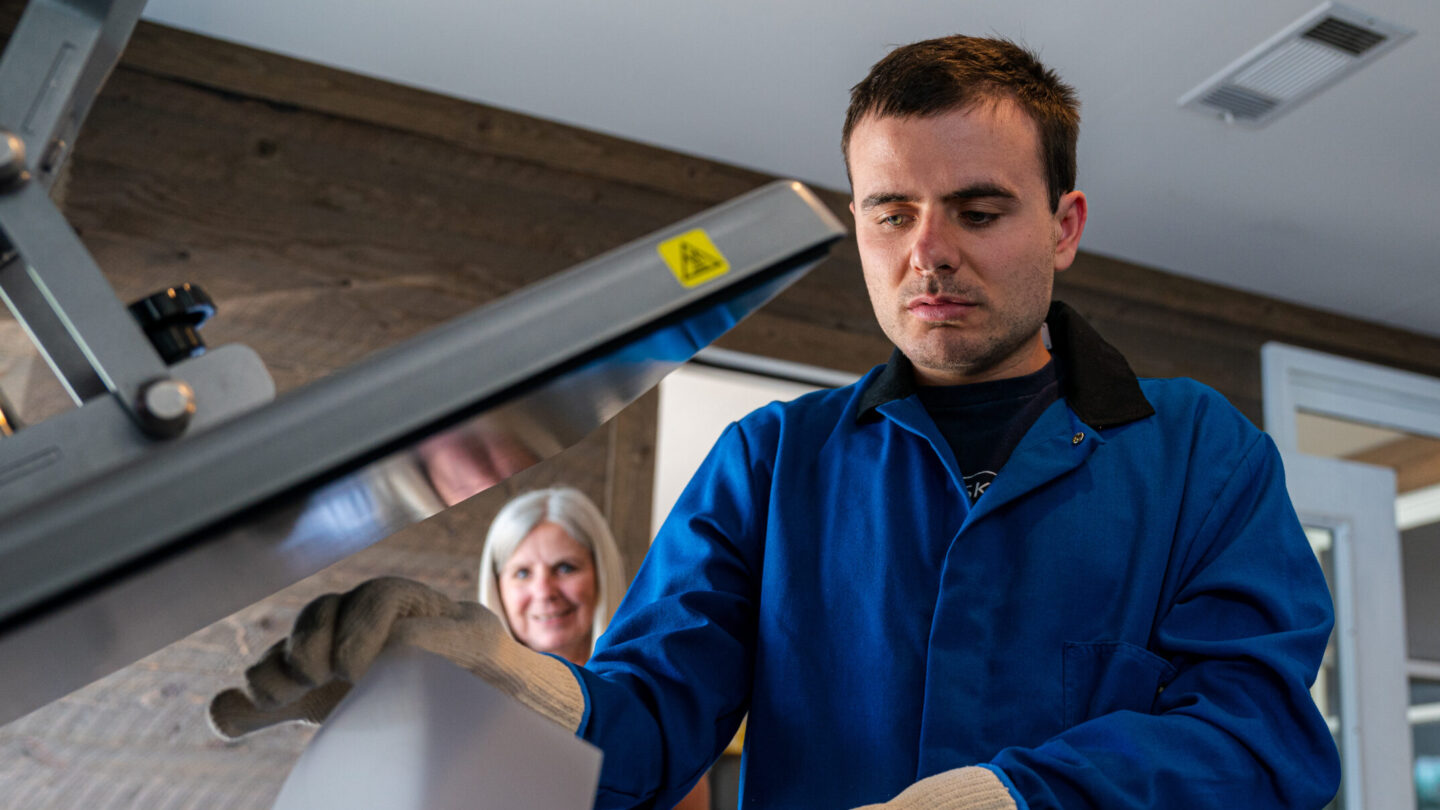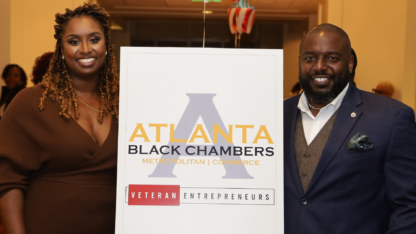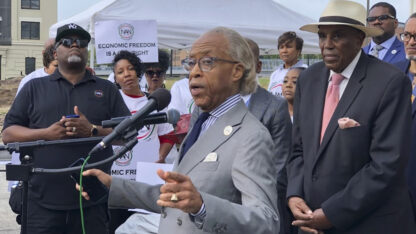Jasmine Duffey can typically be found any given day on her computer, creating new beats and working to see which sounds match best.
Not only is she a sound engineer, but also a spoken word artist and an entrepreneur, running her own print shop from her home in Henry County.
Duffey states that many are often impressed to see that she has accomplished so much, especially considering that for the past couple of years, she has been unable to see at all.
Although born with eyesight, Duffey lost her vision while in college, an experience that initially proved challenging.
“You need to learn to live as a blind person and just hope for technology. So that’s what I did. But I went through a deep depression, deep, deep depression,” she said.
After coming to terms with her new life, Duffey began sound engineering in 2018, which led to her creating her business, Blinded by Ambition, last year.
And while technological innovations have allowed her to operate her computer with little to no difficulties, she credits the nonprofit organization Synergies Work with providing her the foundation and mentorship needed to allow her a fresh start.
“Sightless” – A Spoken Word by Jasmine Duffey
The Atlanta-based organization works with aspiring business owners who are disabled to help bring their ideas to fruition through mentors, resources and community help.
Aarti Sahgal, founder of the organization, started the nonprofit in 2017 shortly after delivering her son, Angad, who was born with Down Syndrome. In doing research, she quickly realized that many career opportunities available to disabled persons were limited in both resources and wages.
“I realized that there weren’t any incubator accelerators in the country that would open doors for people with disabilities,” said Sahgal, whose own son operates a tea business, Chai Ho. “I say this as a parent … not enough is being done to support young adults or people with disabilities to live a meaningful life.”
In Georgia, over two million people have a disability, which is only 3% of the national number of 61 million, according to statistics from the Centers for Disease Control, which defines disability as six types – mobility, cognition, living assistance, hearing, vision, and self-care.
In addition to population statistics, the National Institute of Disability states that adults with disabilities are more than twice as likely to live in poverty compared to other adults.
“We sometimes talk about food, flowers and filth,” said D’Arcy Robb, the executive director of the Georgia Council on Developmental Disabilities.
She says these categories typically refer to the traditionally low-paying industries – such as fast food restaurants or cleaning services – that many disabled adults end up working in.
“I mean, if you think about particularly people with intellectual or developmental disabilities, a lot of times there is still a very unfortunate false framework in our culture that they cannot work, or if they do work, the choices are very limited,” said Robb.
In a small white storefront in Forsyth County, Brett Swanson, a young man with dark brown hair and a focused look on his face, is making a t-shirt for a custom gift basket. His mother, Sue, stands by to provide any assistance he may need.
Their business, The Three Basketeers, builds themed gift baskets and sells them across the country. The two Swansons’ are the brains behind the operation.
Not only do most of the staff, like Brett, have a disability, but all of the items in the gift baskets come from businesses that hire people with disabilities.
Sue says that although her son suffers from communication issues due to autism and epilepsy, it has not stopped him from creating beautiful baskets.
“People tend to write him off as not being intelligent, thinking that what’s coming out of his mouth is what he’s actually thinking, which could not be further from the truth,” she said.
The Swansons first found out about Synergies through one of the monthly meetings the nonprofit offers to support and connect entrepreneurs.
“When they started having their first workshops … we were in their first cohort, and it was fabulous information,” the mother said.
In over half a decade of operation, Synergies has helped over 300 businesses, including 70 new entrepreneurs. They plan to offer community grants and continue expanding resources for the disabled community.
The only hope now, according to Sahgal, is for support from the state in funding and resources.
Although the organization receives support from private companies such as The Coca-Cola Foundation and Truist, local or federal governments have yet to give resources, making it more difficult to offer funding to the start-ups that depend on Synergies.
But Sahgal knows that despite minor obstacles, there is nothing that will stop both her nonprofit and her business owners from achieving success.










